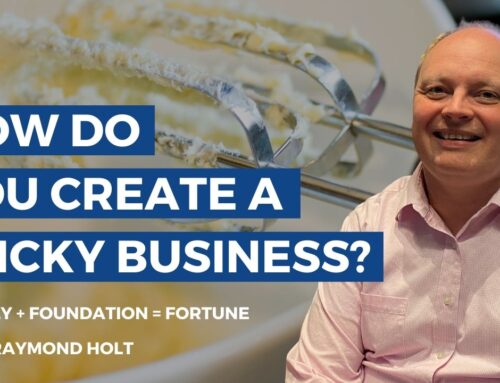Agnentis Partner, Raymond Holt wrote recently on the subject of ‘paying it forward’, which is a popular concept in the USA, but seems to jar slightly with the more reserved attitudes of we Britons.
In a nutshell, ‘paying it forward’ simply means carrying out a small act of kindness without the expectation of any direct reward. It can mean anything from paying someone’s restaurant bill for them to driving out of your way to make sure a stranger gets home safely.
Now, I’ve thought about this a lot, and while ‘paying it forward’ is a big part of our philosophy at Agnentis, it’s clear that many people are slightly wary of the notion, for all sorts of reasons.
Number one, I genuinely believe, is the British reserve I alluded to above.
At the risk of getting into cultural stereotypes, Americans are by nature more outgoing than we are, and feel no embarrassment about picking up a small bill for a stranger in a random act of kindness.
Whereas, many people in Britain would probably be too embarrassed to do so, as, horror of horrors, someone might want to thank them personally for their generosity.
Having said that, and certainly in a business context, we also exist in a ‘transactional’ culture where giving something of value away for nothing, even if it is only your time, can be seen as naïve and un-businesslike.
So why should business owners re-consider the notion of ‘paying it forward?’
Well, while virtue is its own reward, as the old adage says, it can also bring significant advantages to your business, and to those you do business with.
Setting Reasonable Limits On Your Time and Energies
While ‘paying it forward’ is an act of altruism, it doesn’t mean that it comes without conditions.
First and foremost, when you ‘pay it forward’ for someone, you create an obligation for them to do the same thing for someone else in the future. That’s a pretty positive thing to do, as it creates a virtuous circle that can benefit many people, and ultimately lead to more good things happening for you.
There’s nothing wrong with that either: as long as when you do something good for somebody you aren’t actually asking for a favour to be given in return.
Another key factor, I believe, is to make sure that you aren’t giving more than you can afford to.
So by all means agree to mentor someone, but make sure you have the time to do so without damaging your own business; and of course, become an advocate for someone you believe in, as long as you know they won’t let down your faith in them.
After all, ‘paying it forward’ isn’t an act of charity: it is simply a change of mindset to help drive positivity in yourself and others.
How Paying It Forward Will Almost Always Pay You Back
The most obvious and immediate benefit of ‘paying it forward’ is that you’ll be making good things happen for others, which is a great feeling.
However, in the longer term, you will also find that ‘paying it forward’ helps to create a network of genuinely passionate advocates for you, leading to increased business referrals and network extension at minimal acquisition cost.
As I noted in the title of this piece: what goes around comes around. That expression is often used pejoratively, to mean that bad behavior usually comes back to haunt people. I absolutely believe that, as it happens.
But the other side of the coin is that good behavior has a habit of leading to good things, for you and everyone around you.
So while I’m not suggesting you should do laps of the nearest McDonalds’ drive-through in order to buy Happy Meals for all, or start devoting energies to others that are required for your own business, I do believe that ‘paying it forward’ is worth a try for everyone.
It doesn’t take much thought for most business owners to think of someone that deserves a recommendation, a referral, or even just a little of their precious time.
Try it for yourself today: and remember, when this free advice pays off, you don’t owe me one, you owe a favour to someone else. Don’t worry, it’ll get back to me eventually…






